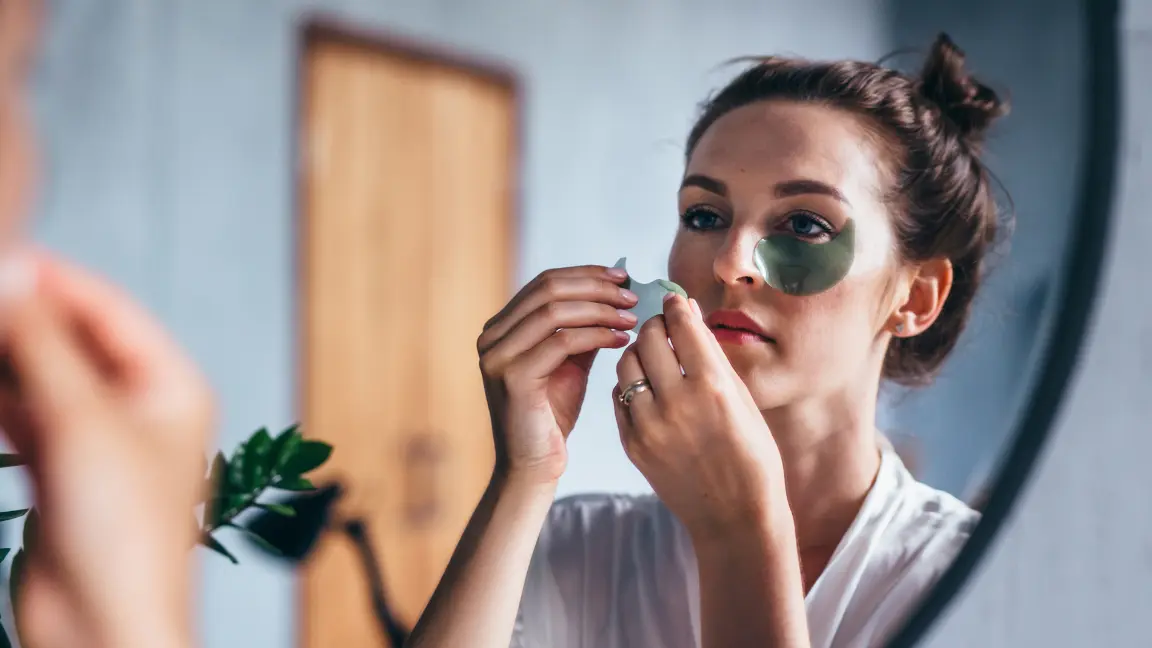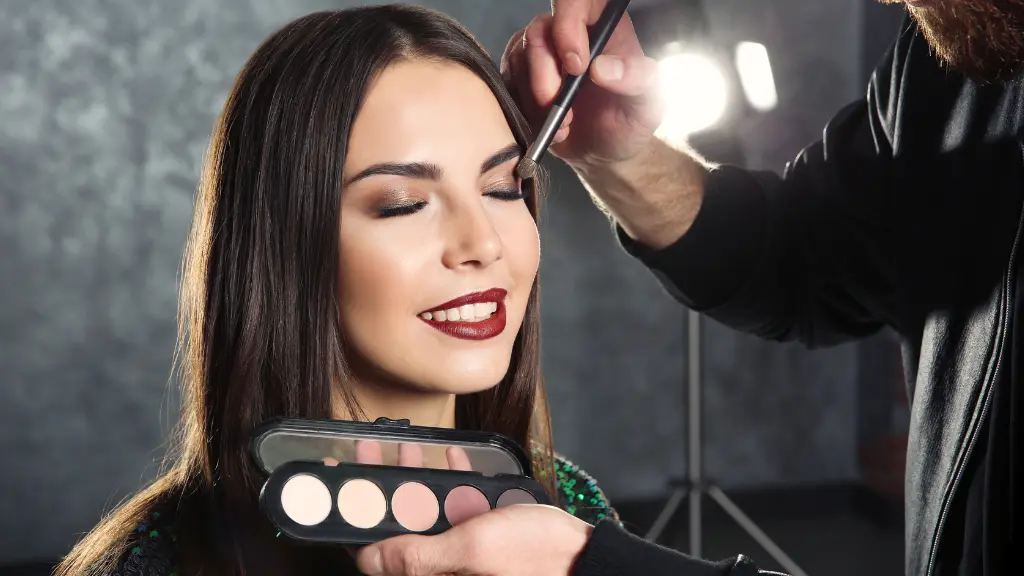Dark circles are a common skin concern that many people face. Whether it’s due to genetics, lifestyle factors, or lack of sleep, dark circles can make you look tired and older than you feel. Over the years, several treatments and remedies have been suggested to reduce dark circles, and Vitamin E is one of the most widely used ingredients in the fight against under-eye discoloration.
But does it really work? In this article, we’ll explore the potential benefits of Vitamin E for dark circles and whether it’s a suitable option for treating this common issue.
You May Also Like: Master the Art of Reading Beauty Labels.
What Are Dark Circles?
Before we delve into the role of Vitamin E, it’s essential to understand what causes dark circles. Dark circles are characterized by a bluish or purple tint under the eyes, often accompanied by puffiness. The skin in the under-eye area is delicate and thin, making it more prone to discoloration. Some of the common causes of dark circles include:
- Genetics: Dark circles may run in the family. If your parents had them, you may be more likely to develop them as well.
- Lack of Sleep: Insufficient rest can lead to the skin around the eyes becoming pale and blood vessels more prominent, resulting in dark circles.
- Aging: As we age, the skin around our eyes thins, and fat and collagen decrease, making blood vessels underneath more visible.
- Allergies: Allergic reactions can cause inflammation and skin discoloration under the eyes.
- Dehydration: When the body is dehydrated, the skin may appear dull and tired, exacerbating the appearance of dark circles.
While dark circles are usually harmless, they can affect your overall appearance and self-confidence. This is where Vitamin E comes in.
What Is Vitamin E and How Does It Benefit the Skin?
Vitamin E is a fat-soluble antioxidant that plays a crucial role in protecting the skin from oxidative stress and free radicals. Free radicals are unstable molecules that can damage skin cells and lead to premature aging. Vitamin E helps neutralize these free radicals, reducing oxidative damage and promoting healthy skin.
In addition to its antioxidant properties, Vitamin E has several skin benefits, such as:
- Moisturizing: Vitamin E is an excellent moisturizer, helping to hydrate and nourish the skin, which can improve the appearance of dryness and fine lines.
- Healing Properties: It promotes healing by supporting the skin’s natural repair processes. This can help reduce scars, discoloration, and irritation.
- Anti-Inflammatory: Vitamin E has anti-inflammatory properties, which can help reduce puffiness and irritation around the eyes.
- Improves Skin Elasticity: By boosting collagen production, Vitamin E can help maintain skin elasticity, which is particularly beneficial for the delicate skin around the eyes.
Does Vitamin E Help with Dark Circles?
While Vitamin E is widely praised for its skincare benefits, its effectiveness in treating dark circles specifically is a subject of debate. Let’s break down how Vitamin E may help and its potential limitations.
1. Hydration and Skin Repair
Dark circles can sometimes be caused by dryness or skin irritation. Vitamin E’s moisturizing properties can help keep the skin hydrated, which may reduce the appearance of dark circles caused by dehydration or dry skin. Additionally, Vitamin E’s healing properties may help repair damaged skin, especially in cases where discoloration occurs due to trauma or irritation.
2. Antioxidant Protection
Oxidative stress can worsen skin discoloration, making dark circles more prominent. The antioxidant properties of Vitamin E protect the skin from free radical damage, which can help prevent further darkening of the under-eye area.
3. Anti-Inflammatory Effects
If your dark circles are accompanied by puffiness or swelling, Vitamin E’s anti-inflammatory properties may help reduce this inflammation. This can be especially helpful if your dark circles are related to allergies or fluid retention.
4. Vitamin E and Blood Circulation
Vitamin E may indirectly benefit dark circles by improving blood circulation. This can be helpful in cases where poor circulation is contributing to the appearance of dark under-eye areas. However, this effect is subtle and may not be a miracle solution for all individuals.
Limitations of Vitamin E for Dark Circles
While Vitamin E has several benefits for the skin, it’s important to manage expectations. Vitamin E may not completely eliminate dark circles, especially if they are caused by genetic factors, aging, or underlying medical conditions. It is also unlikely to completely reverse the effects of pigmentation that come with aging.
Moreover, Vitamin E can sometimes cause skin irritation or allergic reactions in sensitive individuals. It’s important to perform a patch test before applying Vitamin E products, especially around the delicate under-eye area.
How to Use Vitamin E for Dark Circles
If you want to try Vitamin E for dark circles, here are some ways to incorporate it into your skincare routine:
1. Vitamin E Oil
Pure Vitamin E oil can be applied directly to the skin around the eyes. Use a small amount and gently massage it into the skin before bed. Be sure to avoid getting the oil in your eyes.
2. Vitamin E Serums
Many skincare brands offer Vitamin E serums formulated specifically for the under-eye area. These products are often combined with other ingredients like hyaluronic acid or caffeine to help reduce puffiness and hydrate the skin.
3. Vitamin E-Infused Creams
Look for eye creams or gels that contain Vitamin E as one of their key ingredients. These formulations are typically designed for delicate skin and can be applied twice a day for best results.
Additional Tips to Prevent and Reduce Dark Circles
While Vitamin E can be a helpful addition to your skincare routine, there are other steps you can take to reduce dark circles:
- Get Enough Sleep: Aim for 7-9 hours of sleep each night to help reduce puffiness and dark circles.
- Stay Hydrated: Drink plenty of water throughout the day to keep your skin hydrated and prevent dark circles caused by dehydration.
- Use Sunscreen: Protect the under-eye area from the sun by applying sunscreen daily. UV damage can worsen pigmentation and cause premature aging.
- Cold Compresses: Use cold compresses or chilled cucumber slices to reduce puffiness and constrict blood vessels, making dark circles less noticeable.
Conclusion: Is Vitamin E Effective for Dark Circles?
Vitamin E can be a beneficial addition to your skincare routine for reducing dark circles. Its moisturizing, antioxidant, and anti-inflammatory properties help improve the overall health and appearance of the skin around your eyes. However, Vitamin E is not a cure-all, and its effectiveness can vary depending on the root cause of your dark circles. For the best results, consider using Vitamin E in combination with other treatments and lifestyle changes to target the underlying causes of dark circles.
Always remember to patch-test new products to avoid irritation, and if you have persistent or severe dark circles, consult a dermatologist for personalized advice.












[…] You May Also Like: Vitamin E for Dark Circles: Does It Really Work? […]